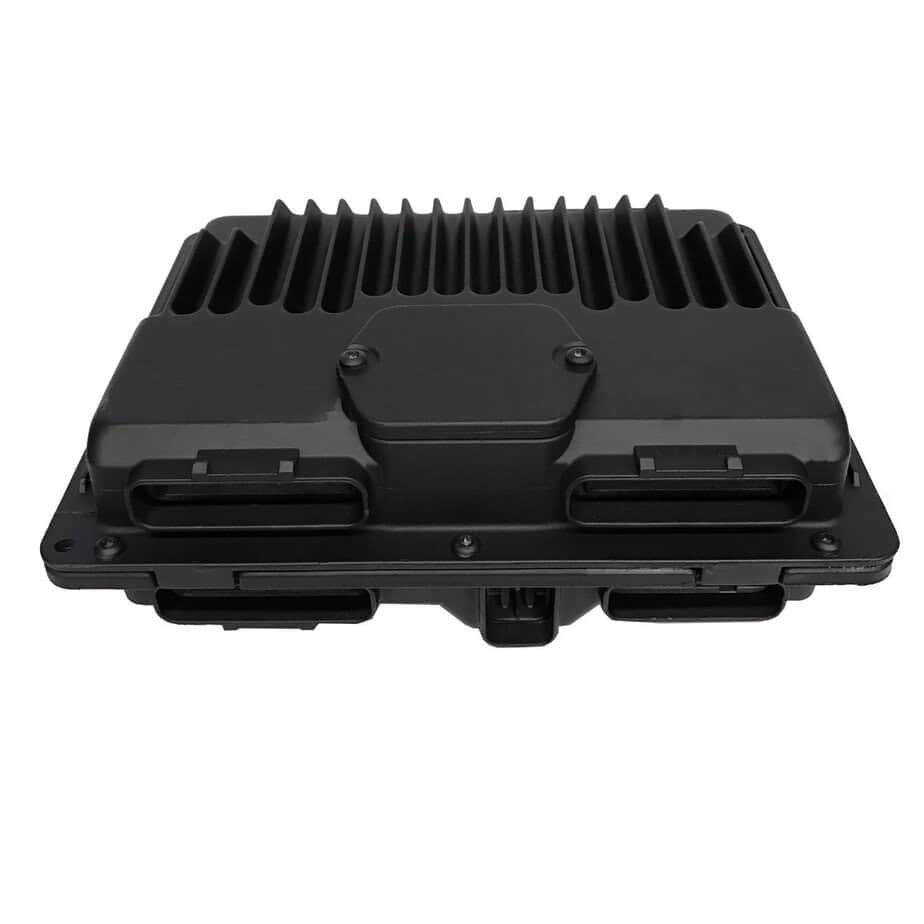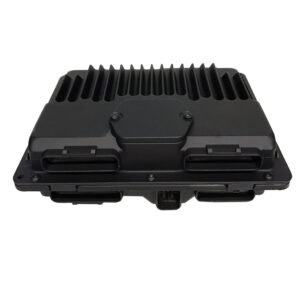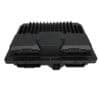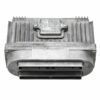If you’re dealing with frustrating and unpredictable issues in your 1997 Chevy S10, GMC Jimmy, or another compatible GM truck, a failing Powertrain Control Module (PCM) is often the culprit. I’ve spent countless hours in the shop diagnosing these exact vehicles, and I know the headaches a bad computer can cause: stalling at stoplights, a persistent check engine light, or a truck that simply refuses to start. This isn’t just a part; it’s the reliable solution you’ve been looking for to restore your vehicle’s performance and dependability.
This PCM, compatible with part numbers 8162296840 and 16229684, is the brain of your engine and transmission. It controls everything from fuel mixture and ignition timing to transmission shift points. When it fails, the symptoms can be maddeningly intermittent. We take the guesswork and hassle out of the repair. Simply provide your vehicle’s VIN at checkout, and we will program the module with the latest GM software updates specifically for your truck. This ensures optimal performance and a straightforward installation process, getting you back on the road without needing a trip to the dealership for expensive programming.
Is Your Truck Exhibiting These Classic PCM Failure Signs?
A faulty PCM can manifest in many ways. If you’re experiencing any of the following, a replacement is likely the solution. In my experience, customers often chase down sensor or wiring issues for weeks, only to find the PCM was the root cause all along.
- ✔ Your vehicle cranks but won’t start.
- ✔ The engine stalls unexpectedly, either while driving or at idle.
- ✔ You’re experiencing harsh or erratic automatic transmission shifting.
- ✔ The check engine light is on with internal module codes like P0601, P0602, or P0605.
- ✔ A noticeable drop in fuel economy.
- ✔ The engine misfires or runs rough, even after replacing spark plugs and wires.
- ✔ Failure to communicate with a diagnostic scan tool.
Case Study: A Tricky Diagnosis
I remember a 1997 GMC Jimmy that came into my shop with a very specific problem: it would run perfectly fine for about 20 minutes, then stall and refuse to restart for at least an hour. The owner had replaced the fuel pump and ignition coil with no luck. There were no codes stored. On a hunch, after letting it run in the bay, I carefully used a heat gun on the PCM located in the engine compartment. Within two minutes, the engine stumbled and died. After it cooled, it started right back up. This classic heat-soak failure is common in these older modules. We installed a correctly programmed PCM, and the truck has run flawlessly for the owner ever since. This simple test can save you hundreds on unnecessary parts.
A Straightforward Guide to Installation
Replacing the 1997 Blazer S10 PCM is a job most DIY mechanics can handle in their own driveway. Our pre-programming service eliminates the most difficult step.
- Safety First: Disconnect the negative terminal from your vehicle’s battery.
- Locate the PCM: On most of these trucks and vans, the PCM is located in the engine compartment, typically on the driver’s side near the battery or firewall.
- Disconnect Connectors: Carefully unclip the wiring harness connectors from the old module. There are usually two or three large connectors with locking tabs. Be gentle to avoid damaging the pins or clips.
- Remove the Old Module: Unbolt the PCM from its mounting bracket. It’s typically held in by a few 10mm or 7mm bolts.
- Install the New Module: Mount your new, pre-programmed PCM onto the bracket and securely fasten the bolts.
- Reconnect Everything: Firmly plug the wiring harnesses back into the new module until they click into place. Reconnect the negative battery terminal.
- Perform Security/Crank Relearn: For many of these GM vehicles, a security relearn (Passlock) and/or a Crankshaft Position Variation (CASE) relearn is required. This can often be done without a scan tool, but a professional-grade scanner makes the CASE relearn much easier. This step is critical for proper operation.
Will This Fit My Truck?
This module is a guaranteed fit for the following 1997 vehicles. Please match your part number (8162296840 or 16229684) or verify your model is on this list to ensure compatibility.
- ✔ 1997 ASTRO (LH front by battery)
- ✔ 1997 BLAZER S10/JIMMY S15 (6-262, 4.3L)
- ✔ 1997 BRAVADA (6-262, 4.3L)
- ✔ 1997 CHEVROLET 1500/2500/3500 PICKUP (Gasoline, LH front engine compartment)
- ✔ 1997 EXPRESS 1500/2500/3500 VAN (Gasoline)
- ✔ 1997 GMC 1500/2500/3500 PICKUP (Gasoline, LH front engine compartment)
- ✔ 1997 ISUZU HOMBRE (4.3L, 6 cylinder)
- ✔ 1997 S10/S15/SONOMA (6-262, 4.3L)
- ✔ 1997 SAFARI (GMC) (LH front by battery)
- ✔ 1997 SAVANA 1500/2500/3500 VAN (Gasoline)
- ✔ 1997 SUBURBAN 1500/2500 (Gasoline, LH front engine compartment)
- ✔ 1997 TAHOE / YUKON (Gasoline, LH front engine compartment)
Frequently Asked Questions About Your 1997 Blazer S10 PCM
Why do you need my VIN?
Why do you need my VIN?
Your Vehicle Identification Number (VIN) allows us to program the PCM with the exact software calibration file your truck needs. This includes specific data for the engine, transmission, and emissions equipment your vehicle was built with, ensuring perfect compatibility and performance.
Is this a simple plug-and-play installation?
Because we program it beforehand, it is as close to plug-and-play as possible. However, on these 1997 GM models, you will likely need to perform a security relearn procedure for the Passlock system and a Crankshaft Position (CASE) relearn for the engine to run correctly and to clear certain trouble codes. These procedures can often be done without special tools.
Will this fix my check engine light?
If the check engine light is caused by an internal failure of the original PCM (common codes P0601-P0606), then yes, this new module will resolve the issue. If the light is on for a different reason, such as a bad oxygen sensor or EGR valve, you will still need to repair that separate issue.
Do I need to return my old PCM?
This listing does not require a core return. You can keep your old module, though we always recommend recycling old electronics responsibly.
What’s the difference between a PCM and an ECM?
The terms are often used interchangeably. ECM stands for Engine Control Module, while PCM means Powertrain Control Module. A PCM is an ECM that also controls the transmission. For your 1997 vehicle with an automatic transmission, this module functions as a PCM.



